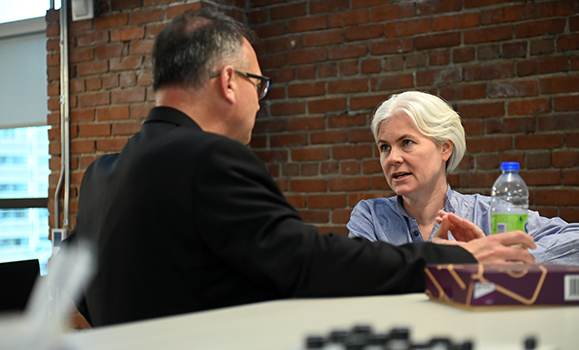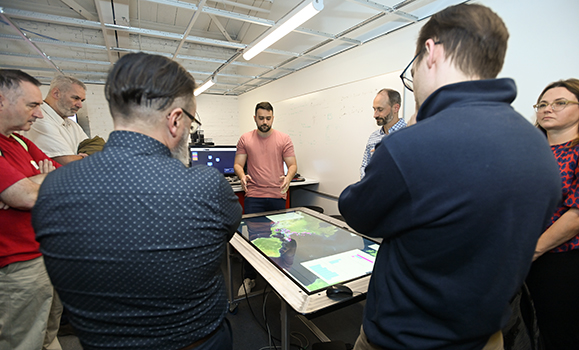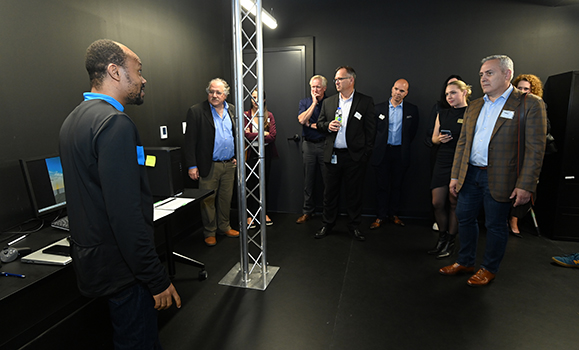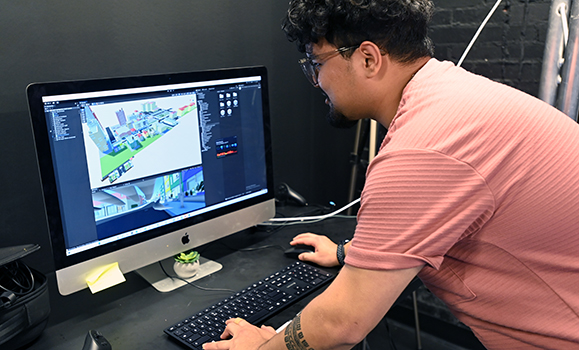The Faculty of Computer Science unveiled its new space in downtown Halifax last month, a state-of-the-art venue intended to meet the needs of one of Dal's fastest-growing Faculties.
The new space, celebrated at an official opening Oct. 5, features seven cutting-edge labs, ample office space, and a collaborative area to accommodate a research cluster focused on developing video games, virtual reality and more.
In just a few short years, the Faculty has expanded from 1,800 to more than 2,500 students thanks to the ScaleCS initiative and meticulous strategic planning — growth that has meant the Faculty quickly outgrew the homestead Goldberg Building on ąű˝´ĘÓƵ’s Studley Campus.Â
“With limited expansion opportunities on ąű˝´ĘÓƵ’s Halifax campuses, we explored viable options that would facilitate research and provide convenient access to and from the Studley Campus,” explained Dr. Andrew Rau-Chaplin, dean of the Faculty of Computer Science.
The Paramount site on Barrington Street in downtown Halifax emerged as the perfect solution, offering modern office and lab spaces that hold the promise of exciting new research and development opportunities with picturesque views of George’s Island to boot.
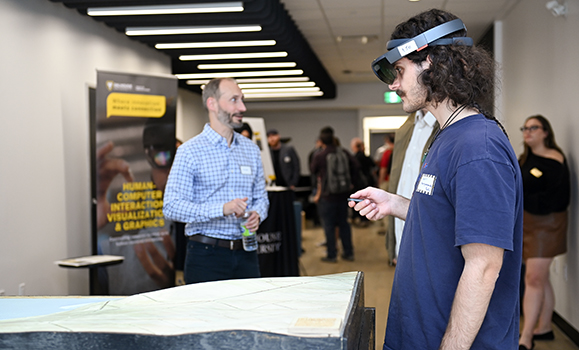
A cause for celebration
Senior Dal leaders, government officials and industry partners were among the more-than 100 attendees on hand to usher in the exciting new chapter for the Faculty at the official opening.Â
The event provided researchers and graduate students with an opportunity to showcase their research through 16 open demonstrations and several guided lab tours. It gave the Human-Computer Interaction (HCI), Visualization & Graphics research cluster the visibility and recognition to key stakeholders that were all part of bringing their new space to fruition.
Demonstrations included Dr. Rita Orji’s Motivational app, as well as Dr. Mayra Barrera Machuca’s Spatial Thinking Gestures, which saw her grad students explaining their exciting research.Â
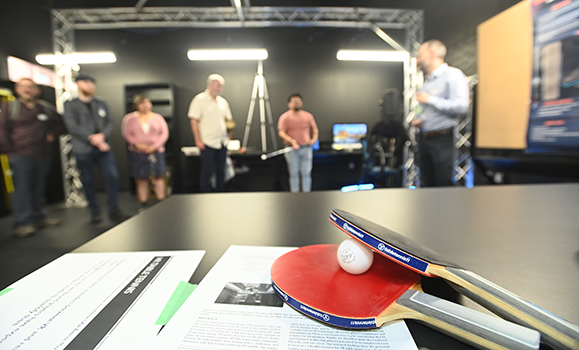
The celebration was especially meaningful as it marked the halfway point through the ScaleCS initiative – a substantial government investment aimed at providing support for the expansion and diversification of the Faculty of Computer Science to help meet the demand of the growing IT sector while contributing to the economic growth of the province.
Dr. Rau-Chaplin extended his appreciation to those who contributed to making the space a reality, the investors who made it possible, and the HCI, Visualization & Graphics cluster for embracing the Paramount site as their new home.
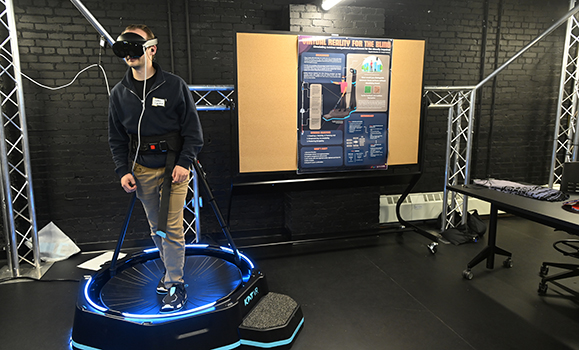
New environment, new possibilities
The HCI cluster includes researchers working on video games and virtual reality as well as others making significant advancements in the realms of persuasive computing, creativity support, and collaborative visual analytics.
Embracing the opportunities that the new space affords, the cluster is enthusiastic about the collaborative workspace it offers for researchers.Â
Reflecting on the newly acquired space, Dr. Derek Reilly, the cluster head, shared his thoughts: “The research cluster needs a space to design and prototype new interaction devices, to develop and test mobile and public display systems, and to capture the full range of body motion in games and other virtual experiences. We also need environments that look and feel like real-world settings, not labs, and spaces to engage with the public. The Paramount site provides space for all of this.”
